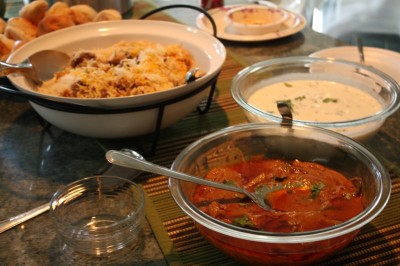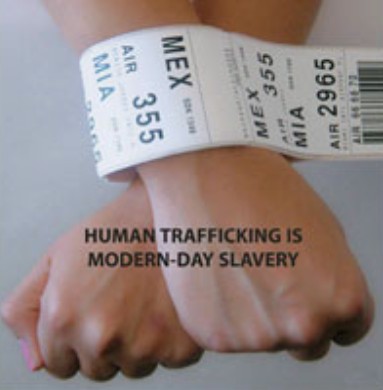guest |
January 24th, 2013
Today a part of the Muslim world celebrates Milad un Nabi (or Mawlid), the birthday of the Muslim prophet Muhammed.
This celebration, 4th of February, is slightly controversial because some Muslims don’t believe that celebrating birthdays is necessary, or even permissible. Despite the divided opinions, however, the majority of Muslims agree that the birth of Muhammed was the most significant event in Islamic history. Thus, those who celebrate it do so with great enthusiasm.
Saudi-Arabia is the only Muslim country where Milad un Nabi is not an official public holiday. In others, Milad un Nabi is sometimes celebrated in a carnival manner. Streets and mosques are decorated, parents tell their children stories about different aspects of the prophet’s life, and many people donate money, clothes, and food to charity. Milad un Nabi is also celebrated in countries such as India, Indonesia, Russia,Canada, as well as here in the UK.

guest |
January 14th, 2013
Makar Sankranti is one of the most important Hindu celebrations. It is perhaps the only Hindu festival which falls on the same date every year, on January 14th.
Makar Sankranti is a joyous occasion because it celebrates the sun god’s journey to the northern hemisphere. The sun and its journey represent spiritual light, knowledge, and virtue, but the day is also a harvest festival.
Makar Sankranti celebrations vary greatly across India, but one of the most popular activities during this time is to fly kites. Watch this video clip on to see how one Indian town celebrates Makar Sankranti:
Read more.. »
guest |
December 25th, 2012
Today is Christmas Day, one of the most important celebrations of the year for two billion Christian’s worldwide.
Christmas Day celebrations vary from place to place, but generally include activities such as going to church, gathering with the family, singing Christmas songs, and giving presents to family and friends. Food, of course, is also an essential part of Christmas, and in most families the high-light of Christmas Day is when everyone gets together to have a large meal.
Merry Christmas everybody!

Have a warm, cosy Christmas!
guest |
December 9th, 2012
Today is Hanukkah, the Jewish festival of lights.

Hanukkah is celebrated by lighting one candle on the Hanukiah each day.
Hanukkah dates back two centuries before Christianity and literally means rededication. Hanukkah symbolizes how God looked after Jewish people in hard times.
The story goes that an ancient king in Syria tried to make Jewish people worship Greek gods. He built a statue of one Greek god in a big Jewish temple and ordered people to bow to it. The Ten Commandments forbid the worshipping of idols and the Jewish people refused. Three years of war and unrest followed these events. Eventually, lead by a small group called the Maccabees, Jewish people claimed back Jerusalem from the Syrians. Their temple, however, was destroyed. Jewish people then rebuilt the temple and purified it by burning ritual oil.
The purification of the temple marks one of the biggest miracles in Jewish history: only a small amount of oil was found (enough to last for a day) but the lamp in the temple burned a total of eight days.
Read more.. »
Diwali is the Hindu Festival of Lights 
Diwali is a five-day long celebration and means as much to Hindus as Christmas does to Christians. Diwali signifies the renewal of life and heralds the beginning of winter – when sowing crops can start.
Diwali is also a Sikh festival, especially celebrating the release from prison of the sixth guru, Hargobind, in 1619. However, Sikhs had celebrated Diwali for many years before that. The foundation stone of the Golden Temple at Amritsar, the holiest place in the Sikh world, was laid on Diwali in 1577. For Jains, Diwali marks the attainment of Moksha (Nirvana, or eternal bliss) by the founder of Jainism, Lord Mahavira.
Find out more about Diwali.
11th Hour, of the 11th Day , of the 11th Month.
Armistice & Veterans Day is commemorated, especially in Europe and North America, in rememberance of the ending of the First World War. 11am on November 11th was the date chosen to end formal hostilities. The day is now used to remember all those who have lost their lives during war times. Although not a public holiday in Europe, a one-minute silence is observed at 11am. The nearest Sunday to the 11th traditionally is Remembrance Sunday when town officials place wreaths of poppies on their town’s memorials.
In Poland, 11th November is a national holiday and, besides Remembrance Day, it celebrates Polish Independence Day. In the USA, if Veterans’ Day happens to fall on a Sunday, then the following Monday is declared a public holiday. This is considered to be one of the most important holidays in America. Comemorated in Italy on 4th November.
Read more.. »
 Halloween Day is celebrated as a festival around the world.
Halloween Day is celebrated as a festival around the world.
Especially celebrated by the younger generation, this festival of All Hallowes comes about as a practice followed among the Christian population and has its origins as a Pagan Celtic festival – Samhain. It’s celebrated the night before the Christian Festival of All Saints Day. Adults create laterns for their children made from large pumkins which have been made into ghoulish faces. Children play ‘trick or treat’.
However, in the Nordic countries this is the evening when friends and relatives who have died are remembered. People often go to the cemetary and place lit candles in the snow. The sight of hundreds of candles burning in the dark, illuminated by the white snow is quite a sight.
Find out more about Halloween
Find out more about All Saints Day
guest |
October 26th, 2012
Today is the start of a four-day Muslim festival, Eid-ul-Adha.

Eid-ul-Adha is also known as Feast of the Sacrifice
Eid-ul-Adha is the second most important festival in the Muslim calendar. It is a public holiday in Muslim countries, but not a public holiday in the UK. Most Muslims living in the UK are likely to take one or more days of annual leave at this time.
Eid-ul-Adha commemorates Ibrahim’s will to sacrifice his son when God ordered him to. The story goes that Allah ordered Ibrahim to sacrifice his youngest son as an act of obedience. The devil then appeared to Ibrahim telling him to disobey Allah. Ibrahim ignored the devil. When he was about the kill his son, Allah stopped him and gave him a lamb to sacrifice instead.
This story is also found in the Jewish Torah and in the Old Testament.
Today, Muslims around the world sacrifice a sheep or a goat as a reminder of Ibrahim’s obedience. It is common to sacrifice the sheep at home, but in the UK the animal must be killed in the slaughterhouse.
Eid-ul-Adha is always a great feast. One of the most important things about the festival is sharing. The lamb meat is usually shared among family, friends, and the poor. Helping the less fortunate is also very important during the festival, and many Muslims donate money to charities during Eid.
Eid-ul-Adha also marks the end of the annual Hajj pilgrimage to Mecca in Saudi-Arabia.
Happy Eid Everyone!
guest |
October 18th, 2012
Today is Anti-Slavery Day, a day to raise awareness of modern day slavery and to inspire people to eliminate it. The transatlantic slave trade was abolished and outlawed in 1807 and slavery is internationally prohibited in the Universal Declaration of Human Rights. However, there is still an estimate of 12.3 million people worldwide forced to work for little or no pay.
The transatlantic slave trade was abolished and outlawed in 1807 and slavery is internationally prohibited in the Universal Declaration of Human Rights. However, there is still an estimate of 12.3 million people worldwide forced to work for little or no pay.
Bonded labour is the least well-known, yet the most common form of modern slavery. Bonded labour, or debt bondage, means that a person’s labour is demanded as a means for repayment for a loan. A bonded labourer often works for no pay, seven days a week. Bonded labour is sometimes passed on for generations and may involve entire families. It is most common in South-Asia, in cottage industries and in factories, but it can also be found in parts of Africa, the Caribbean, and South-East Asia.
Other forms of modern day slavery are forced marriage, child labour, forced labour, slavery by descent, and human trafficking.
Read more.. »
guest |
October 16th, 2012
Today is World Food Day, a day to honor the founding of the Food and Agriculture Organization of the United Nations in 1945.

1.5 billion live on less than $1 a day
World Food Day is a day to consider questions such as: is there enough food for everybody? Why do people go hungry? Are we eating too much? Are we eating too much meat? What is sustainable farming? What is genetically manipulated food?
Food is a basic human right but nearly one in six people around the world do not have enough food to be healthy and to live an active life. Approximately 1.5 billion people live on less than US $1 a day and every 3.6 seconds someone dies of hunger.
The Food and Agriculture Organisation states that hunger is “the most critical manifestation of poverty,” and hunger, “undermines the peace and prosperity of nations and traps individuals in a vicious cycle of poor nutrition, ill health and diminished capacity for learning and work that is passed on from one generation to the next.”
Former Head of the Food and Agriculture Organization, Dr Jacques Diouf, speaks of the connection of hunger and poverty and raises a valid point: “While hunger is a consequence of poverty, the opposite is also true: Hunger causes poverty.”
Read more.. »







 Halloween Day is celebrated as a festival around the world.
Halloween Day is celebrated as a festival around the world.
 The transatlantic slave trade was abolished and outlawed in 1807 and slavery is internationally prohibited in the Universal Declaration of Human Rights. However, there is still an estimate of 12.3 million people worldwide forced to work for little or no pay.
The transatlantic slave trade was abolished and outlawed in 1807 and slavery is internationally prohibited in the Universal Declaration of Human Rights. However, there is still an estimate of 12.3 million people worldwide forced to work for little or no pay.
 Hello, I'm Deborah Swallow and, for the last fifteen years, I've worked in over thirty countries addressing the complexities of people working internationally across multiple cultures, so individuals and organisations alike can gain an authentic competitive edge and win in international markets.
Hello, I'm Deborah Swallow and, for the last fifteen years, I've worked in over thirty countries addressing the complexities of people working internationally across multiple cultures, so individuals and organisations alike can gain an authentic competitive edge and win in international markets. 